During the mixer portion, in the outdoor garden, Carolyn Edwards introduced herself and asked if I'd fill out a form to possibly win a chance to sit with the orchestra for one of the selections. It was very kind of her and the other musicians of the PSO who hosted the events before the concert. The ultimate winner indeed got to sit for the 1812 Overture. In fact, PSO Cellist Mikhail Istomin joked that the winner might need earplugs, or she might go deaf, that's how loud the horns are for the ending.
In the lobby three more members of the Cello section of the PSO played as a trio. The part I like best was the overture to Magic Flute by Mozart. These were Charlie Powers, Alexandra Thompson and Michael DeBruyn. I spoke to Michael after they played and he gave me the name of a few of the selections. All of the musicians are very friendly and gracious.
Jennifer Orchard and Craig Knox came out between selections to announce one of winners of the evening. It was entertaining and funny. The winning selection was inside Craig's Tuba which at one point he joked weighed 75 pounds as he held it over his head. See the photos I took below...
Ludwig Van Beethoven - Overture to Egmont
Leading off with Beethoven is always a grand idea in my opinion, and usually the audience is very receptive.
Wolfgang Mozart - Symphony No. 38 (Prague), 3rd mov. Presto
Mozart's Prague Symphony is one of his best! The third movement is very rhythmic. Even if you've never experienced this, the first time hearing this charming music brings an instant smile.
Johannes Brahms - Symphony No. 3, 3rd mov. Poco allegretto
This movement elicits moderate tempo and uniquely Brahms style. I like Brahms, but my favorites are the classical styles of Mozart and Beethoven.
Sergei Prokofiev - Classical Symphony (No. 1) 3rd and 4th mov.
We were told that this symphony was composed in an attempt to emulate the style of Joseph Haydn. After this Prokofiev selection, Conductor Andres Franco asked the audience if they have a favorite so far. Not too many responded, but for me, this is it. In fact, I wished they had played they entire symphony. This is the first time I heard it played live by a symphony orchestra. I'll be looking forward to an upcoming performance of the Prokofiev Classical Symphony soon!
Leonard Bernstein - Overture to Candide
Another crowd favorite. American composer Bernstein was at his very best with this Overture. So many elements and wrapped together in a brisk package which seems almost too short, we want more.
James Macmillan - One
Conductor Andres Franco indicated that this composition is a single line of music that is transferred between sections of the orchestra until the end. I liked it very much.
Edward Elgar - Enigma Variations E.D.U. Finale
Elgar Enigma Variations contain themes from two variations are echoed: 'Nimrod' and 'C.A.E.' The one part has a very distinctive and recognizable melody. All in all a very enjoyable selection.
Piotr Tchaikovsky - 1812 Overture solennelle
Mikhail Istomin, Cello, introduced this piece. He's from Russia, and apparently he never played this piece over there, yet he joked that it's always played here on the 4th of July and that this piece seemingly has nothing to to with our Independence Day. The beginning is a slow and quiet section of Cellos which is what I like best. But I'm certain the ending with the fireworks and verve might be the crows favorite. I like the begging so much, I use it as an alarm. I hear it every day and never grow tired. But to be sure, to hear this music in person at Heinz Hall with the world famous Pittsburgh Symphony Orchestra is treat that should never be missed!
As an encore, the PSO played music from Jacques Offenbach's Orpheus in the Underworld
The "Infernal Galop" from Act 2, Scene 2, is famous outside classical circles as the music for the "can-can" (to the extent that the tune is widely, but erroneously, called "can-can")
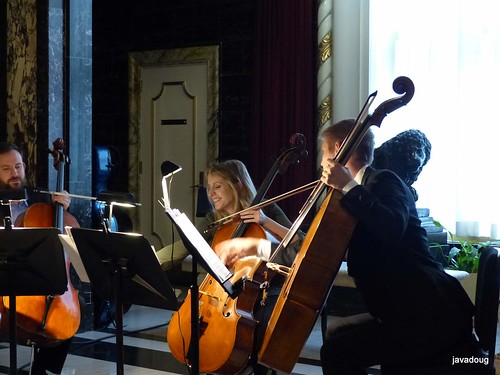
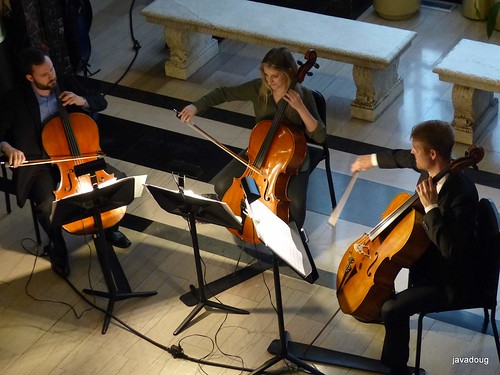
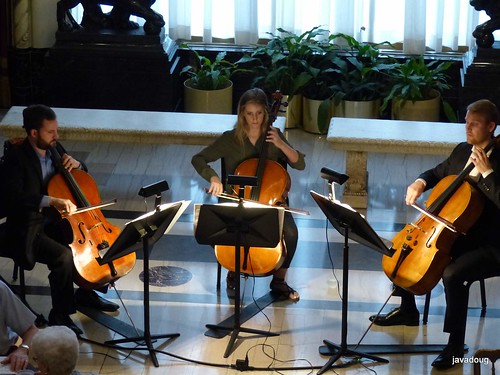
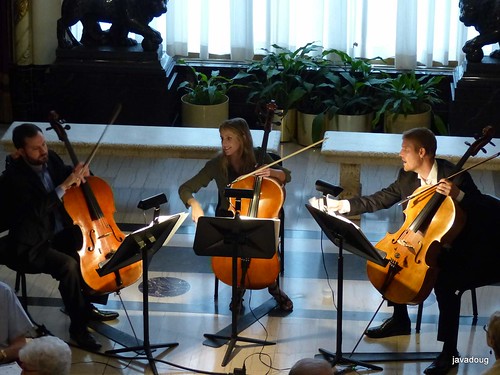
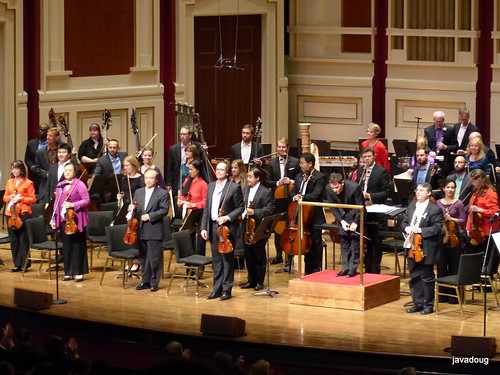
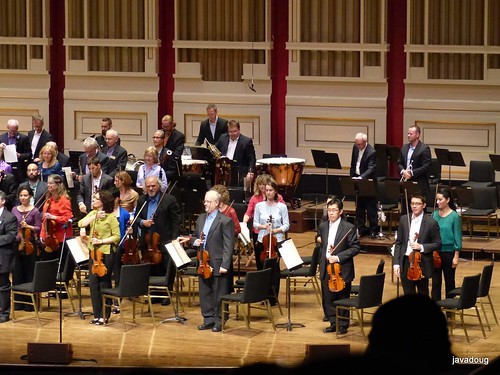
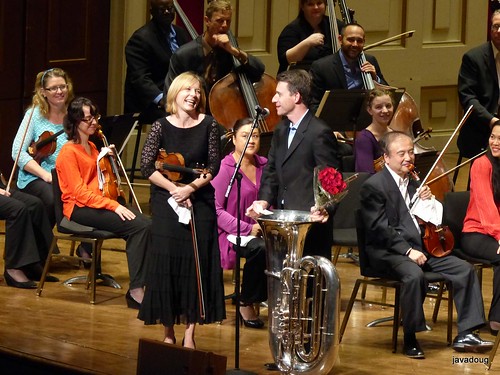
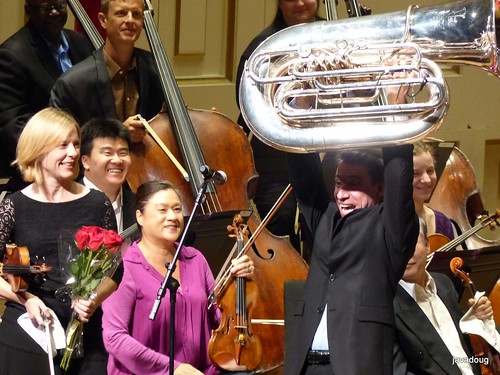
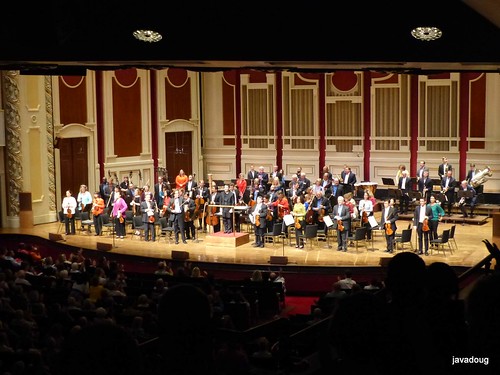
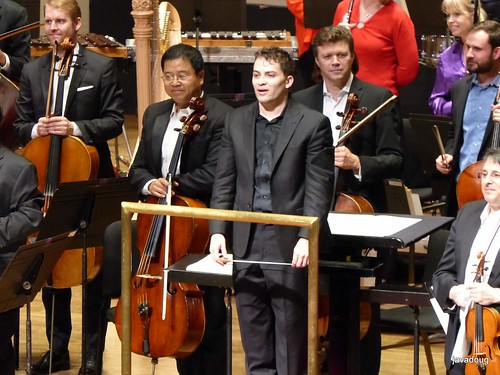
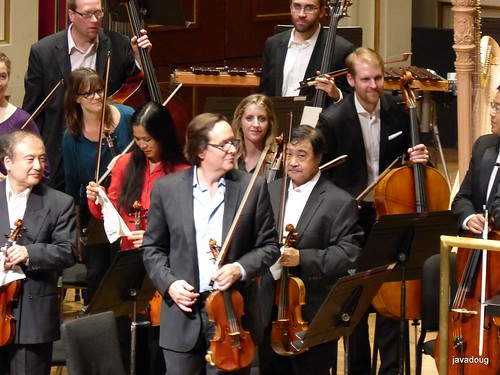


No comments:
Post a Comment